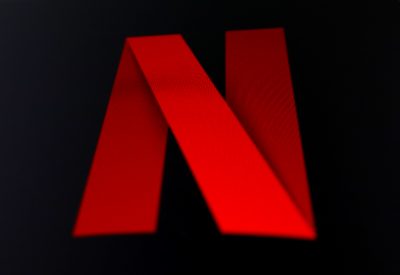Boston University’s College of Communication hosted an expert panel on Netflix’s nonfiction television content featuring BU graduates, a Netflix executive and Antonio Porowski of Netflix’s “Queer Eye.” The webinar was an Alumni & Friends event that took place on Zoom last Wednesday afternoon.

Ben Levine, a 2012 graduate of Frederick S. Pardee School of Global Studies and Netflix executive, and Olivia LaRoche, a 2009 graduate of COM, participated in the college’s Zoom webinar “The Power of Netflix: From a Nonscripted Perspective.”
The panel session aimed at addressing Netflix’s rise to popularity as a streaming service and how it continues to adapt, with a focus on non-scripted and nonfiction productions. The event also featured Jenn Levy, vice president of Netflix’s nonfiction productions, and Antoni Porowski of Netflix’s hit show “Queer Eye.”
In an interview following the webinar, COM Dean Mariette DiChristina said COM events are intended to give students and alumni a comprehensive view of all facets of the college’s professional focus.
“That’s the goal of all of the … events, no matter what topic we’re going after,” DiChristina said. “What is happening in the industry? How can you get an inside look at how people are innovating and being creative in their industries?”
Much of the session focused on addressing the panelists’ personal career paths to the streaming company. LaRoche, who worked at iTunes before going over to Netflix in 2014, said that her experience in digital distribution helped her land a position on the Nonfiction Productions team.
“Even though my focus was primarily on music, just having the knowledge of how to sell things and how to merchandise things digitally … was a skill that was needed at the company at the time,” LaRoche said during the webinar.
Levy joined the nonfiction team in 2017, after nine years in cable television with Bravo TV, where she helped produce the original “Queer Eye.” According to Levy, the decision to leave Bravo was a difficult one, but she also saw the advent of streaming as the future of television and didn’t want to be left behind.
“I remember feeling stuck in gear, and I do remember feeling like there was a Titanic headed for cable TV, and I just kept saying, ‘I don’t want to be the dude playing the violin on the Titanic when streaming takes it down,’” Levy said during the panel.
Levy also talked about the challenges of contemporary entertainment production — the difficulties in producing highly grossing content in a highly saturated market. She said that the production team has to find pitches that are not only easily accessible and relevant to the fast-paced contemporary culture, but also cover a wide variety of topics and genres for Netflix’s expansive audience.
“We all know that clutter in TV is real, clutter in entertainment is real,” Levy said. “So, we’re constantly looking for a super gettable, understandable hook. A loud, unexpected hook.”
John Hall, a professor of TV and film in COM, spoke after the webinar on the effects of over-saturation on today’s entertainment products.
“There’s a very wide array of audiences that are going on to these streaming platforms and they’re not always looking for the same thing,” he said. “They’re definitely pushing on us, stuff that is, on some level, a little glassy. And that’s easier to market when you have something flashy.”
The webinar concluded with a detailed anecdote from Porowski on how he got his part on Netflix’s reboot of the hit reality show “Queer Eye,” from meeting with creator David Collins to the drawn-out process of auditioning.
“It’s been an exponential growth curve of learning,” Porowski said, reflecting on the entire experience. “But as I gained more confidence, especially with having Netflix as a home and having that global reach, it’s like, ‘what other stories do I want to tell?’”
Specifically, Porowski talked about his personal experience as a sexually fluid man and his hope of portraying that more in his future projects. Porowski, a son of Polish emigrants, cited the Central-European country as a potential destination for reaching a wider audience.
“Netflix is also a massive advocate for equality, and Poland is a place right now that is really struggling with that, with the super right-wing government,” he said. “So I want to get involved with the content, and the documentaries and the shows that [Netflix] is putting out there.”
These conversations take place in the context of other aspects of the communications industry.
“You’re going to touch a lot of people in your industry who are not experts in the same things as you,” DiChristina said. “The actor’s piece of it is an important part of that area of the communication industry, so understanding that would help you understand better how to do your job in any of the studies that we do here. It’s part of getting the whole picture.”



























































































































